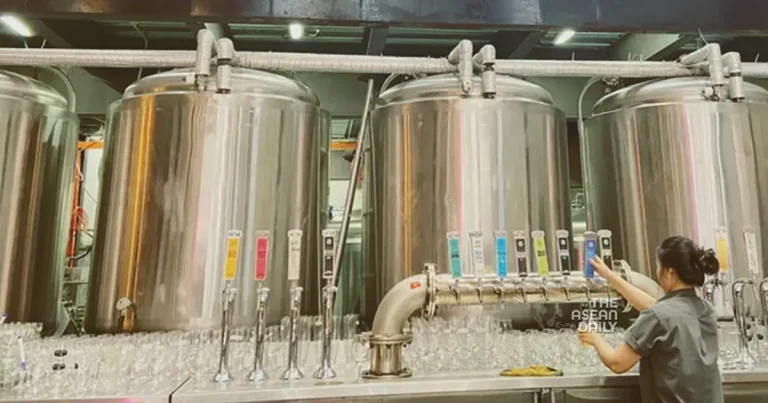28-9-2023 (HANOI) Vietnam’s economic slowdown is taking a toll on the country’s beer industry as households reduce their spending on alcoholic beverages. As the cost of living increases, many are prioritizing essential expenses such as food, healthcare, and electricity.
The relatively low inflation rate of less than 3% hasn’t been the primary concern for most Vietnamese citizens. Instead, it’s the overall economic sluggishness that has prompted austerity measures. Vietnam, a manufacturing powerhouse in Southeast Asia, has experienced a six-month decline in exports – the longest since 2009. This decline is a result of softer global demand for goods and China’s uncertain recovery.
The country’s economic health is closely monitored, and the next update is due on Friday. Economists surveyed by Bloomberg expect to see 5% growth in the third quarter of the year, a slight improvement from the previous quarter’s 4.4%. While this indicates a second consecutive quarter of acceleration, it may not be sufficient to achieve the government’s full-year target of 6.5% growth.
The International Monetary Fund (IMF) predicts that growth will slow to 4.7% in 2023. In a statement, the IMF emphasized the need for fiscal policy to support economic activity due to limited room for monetary policy adjustments.
Fragile demand has caused companies to be cautious about hiring, leading to a slight decline in employment in August. This situation is affecting the nation’s “quans,” where people typically gather to socialize and enjoy drinks after work, resulting in slower sales.
Vietnam is a major player in the beer consumption world, ranking first in Southeast Asia and ninth globally. As households cut back on their alcohol budgets, the impact is felt throughout the country’s beer production sector and internationally. Companies like Heineken have reported a drop in consumption during the first half of the year, largely attributed to Vietnam and Nigeria. As a result, Heineken cut its earnings forecast. The Dutch brewer plans to invest an additional $500 million in Vietnam, where it already operates six factories.
Analysts are expecting a slowdown in earnings growth for Thai Beverage Pcl, the parent company of Vietnam’s largest brewer, Saigon Beer Alcohol Beverage Corp. While Sabeco’s revenue dropped by 11% in the first half of the fiscal year, experts predict that sales growth will remain sluggish for the rest of the year and into 2024.
Hai Phong JSC (Habeco), the country’s second-largest beer company, partly owned by Carlsberg AS, also experienced a decline in revenue and profit after tax. The beer industry in Vietnam is grappling with a challenging period, including a drop in beer sales and a substantial increase in material costs. As a result, the Vietnam Beer Alcohol Beverage Association has requested a delay in the special consumption tax hike on alcoholic beverages.
Despite the affordability of beer in Vietnam, people are finding ways to cut expenses. Going out for beer with friends has become less frequent for many, as they opt to buy beer from stores and consume it at home to save money.




